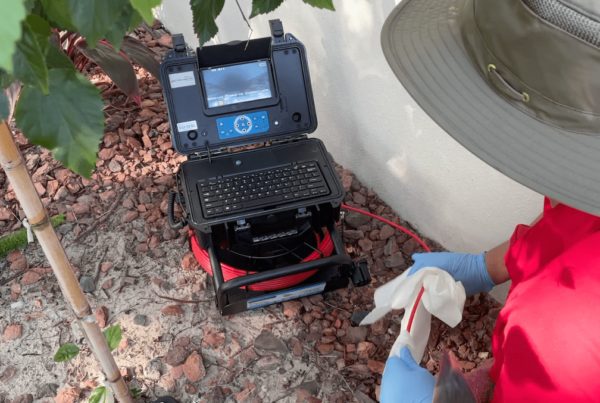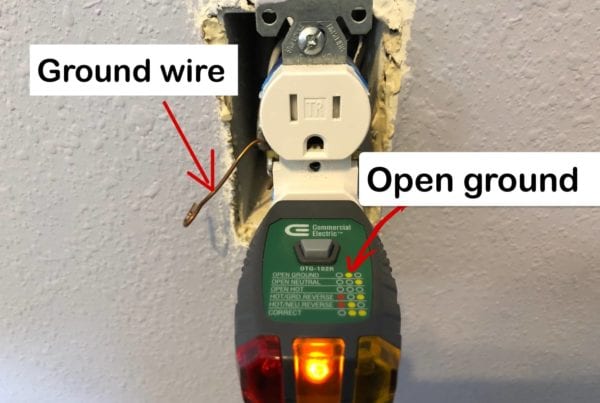
Are you worried about an upcoming home inspection? While a home inspection can be stressful, it doesn’t have to be.
We created a great list of the most common things that can fail a home inspection. The funny thing is, a home inspection is not pass or fail. Really, the inspection is only to build a report based on a professional’s opinion. However, some items on a home inspection could fail insurance inspections or certain mortgage requirements. Therefore, for this article, while we are talking about items that could fail your home inspection, the inspection does not necessarily pass or fail.
If you are selling the home that is being inspected, try looking for these items in your own home and repairing them before the inspection. If you are buying a home ordered a home inspection, these are major items that could come up.
What Is A Home Inspection?
Before we get into it, we first need to define a home inspection.
A home inspection is an independent evaluation of a property and its structure. Typically, this is requested during a real estate transaction, but not always.
Homebuyers hire licensed home inspectors to evaluate the property’s condition, report on the general condition, and recommend specialized contractors where needed.
Top 10 Things That Fail A Home Inspection
Listen to the Podcast
[powerpress]1. The Roof
The roof is one of the largest deal breakers of any home inspection. It is also one of the most expensive to repair.
Most home inspectors will be looking for at least 3-5 years of life left on the roof. If you are not familiar with roof lifespans, we have an article on that.
In addition, home inspectors are looking for unprofessional repairs, signs of leaks, damage, and signs of excessive wear.
2. HVAC Issues
For #2 on our list, we have HVAC issues. While HVAC systems are not as expensive as roofs, they are more common and they are still expensive fixes.
HVAC systems can be well over $5,000 to replace depending on the size of the unit and type.
During the home inspection, home inspectors test how well the A/C is cooling and they look for a temperature differential between 14 and 24 degrees (that is the difference in temperature of the air going into the unit versus the air coming out).
In addition, home inspectors test the heat, check for condensation line leaks, mold, ductwork damage, and other general issues.
3. Electrical Issues
Today’s electrical standards are much higher than they were 30 years ago, go figure. Because of updates to electrical requirements and outdated panels, issues can easily occur to older electrical systems.
Electrical concerns are another top concern on home inspection reports, mortgage lender requirements, and even for insurance.
The most common electrical issues are outdated panels, fuse boxes, aluminum wiring, cloth wiring, and 2-prong outlets.
Be sure your electrical system is updated to today’s standards by hiring a licensed electrician.
4. Water Intrusion
Water intrusion can be from the roof, windows, or straight through improper siding. Typically, water intrusion leaves evidence like staining, or conducive conditions that give hints water may be entering the home.
Home inspectors test for water intrusion by using thermal imaging and moisture meters.
Be sure to keep vegetation away from the home, keep the home painted, and check for water stains to find evidence of water intrusion.
5. Mold Issues
Mold issues occur through sustained water entry and a food source. To illustrate, if a roof leak never gets fixed, this can lead to an area of drywall that is constantly wet. These conditions can easily lead to mold growing.
To keep mold issues from occurring, regular home maintenance is needed.
6. Structural Settlement
Structural settlement occurs in older homes, unmaintained homes, or even new homes with improper foundation installations.
Structural settlement can be defined as cracks in your home larger than 1/8 of an inch, doors not closing or closing automatically, sloped floors, and more.
To prevent structural settlement, it helps to ensure water is properly draining away from your home. When water drains towards the home, water can easily move soil your foundation settles on.
7. Termites
Termites are very common in the southeast United States and in other humid areas like California. Termites love wood that is slightly damp.
Therefore, home inspectors find termite damage from unmaintained homes with water intrusion issues. It is important to note, home inspectors are not generally licensed to report on termites. However, some can be. Other times, home inspectors will outsource pest inspections or refer a pest inspector in their report.
Be sure to hire a pest control company for preventative termite treatments and inspections, as well as, keep up with regular home maintenance.
8. Grading Issues
Grading issues have to do with how the soil is sloped next to your home. When water lands on your roof or near your home, you will want the water to slope away from your home.
Be sure around all areas of your home, your grading is sloped away from your home. Also, you can consider installing gutters and gutter extensions to direct water away from your home more. Moreover, keeping mulch and vegetation away from your home helps wet soil dry out faster.
Controlling water flow can really improve many conducive conditions that lead to these top things that fail a home inspection.
9. Missing Insulation
Missing insulation can easily make a home less efficient and hot/cold. Be sure insulation is added in attics, crawlspaces, and any other areas the interior walls meet the exterior environment.
10. Drainage Pipes
Drain lines, like cast iron or Orangeburg pipes, are a huge problem in today’s homes. Both types of drain pipes, unfortunately, will fail and can lead to many issues like backup sewage, structural issues, and more.
Ensure your drainage pipes are updated something like PVC and consider having a sewer scope inspection completed to check the condition of your drainage pipes.
Final Thoughts
While a home inspection can be stressful, it doesn’t have to be. If you are selling a home, consider a pre-listing inspection to know what a buyer’s inspector may find. If you are purchasing a property, hiring a highly qualified home inspector can help find issues and address your concerns.
Have questions? Comment below!



